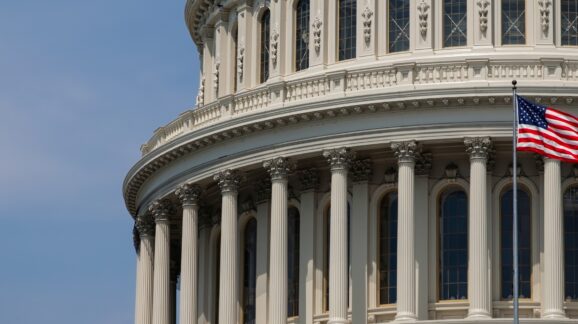EEOC Nominee Kalpana Thinks Transparency Is an Important Value, Less Clear on Need to Abide by It

Photo Credit: Getty
The Equal Employment Opportunity Commission may become a lot less accountable in its decision making than it was under the Trump administration should President Biden’s nominee, civil rights attorney Kalpana Kotagal, be confirmed by the full Senate. Kotagal’s nomination has stalled in part because she has refused to clarify if she would maintain the EEOC’s current standards for transparency and accountability or roll them back. The latter would give the agency’s counsels more freedom to pursue cases with little oversight from the EEOC’s board or the White House itself.
Kotagal is a civil rights attorney who seems to believe that racial discrimination is omnipresent. Should she approved to join the EEOC’s five-member board, she would give it a Democratic majority necessary to reverse the current transparency rule. Asked by Sen. Richard Burr (R-NC), at a May Senate Health, Education, Labor and Pensions Committee hearing, if she would uphold the agency’s current accountability standards, she twice refused to provide a direct answer. “Senator, I think transparency is an incredibly important value,” Kotagal replied. She did not however indicate whether she thought transparency was an important enough value that the EEOC should continue to engage in it.
The Biden administration has been dismantled many safeguards put in place by the prior administration, so the EEOC’s transparency rule may be on the chopping block too.
Her refusal to clarify her position has damaged her nomination; the committee deadlocked on it on Wednesday. Committee Chair Patty Murray (D-WA) has the option to discharge Kotagal from the committee allowing the full Senate to vote on nomination. However, not getting a favorable report from the committee may hurt her odds before the Senate.
The EEOC is the independent federal agency that enforces anti-discrimination laws. Independent agencies are constitutionally suspect to start with, since they are parts of the executive branch but not under the direct control of the White House. The EEOC’s five-member board compounded this problem in 1995 when it delegated most of its litigation authority to its in-house general counsel. That allowed the general counsel to effectively act independently of the EEOC board, and to delegate its authority to its regional counsels. In short, no one was really in charge. Liberal groups like American Constitution Society applauded, saying it “allowed EEOC’s litigation program to proceed without excessive bureaucratic delays and undue political influence.”
The Trump administration reversed this in 2020, by requiring the general counsel to get prior approval from the board for most major actions and eliminating the counsel’s ability to delegate authority further down the line. This had the effect of making the EEOC more transparent because the board had to publicly sign off on the general counsel’s actions.
“Commission votes, public meetings, and hearings are posted on the EEOC’s website and easily accessible to the public,” noted Braun at Kotagal’s May 10 confirmation hearing. “The General Counsel was required to submit certain classes of proposed litigation to the Commission for a vote by every Commissioner. These basic measures of transparency and accountability allowed for greater confidence among the public, employers, and workers in the Commission’s decisions.”
This reduced the amount of litigation the EEOC pursued. The agency filed 706 total cases between 2015-2018, the Obama administration’s second term, while it has filed 378 total cases since the Trump administration, a decline of about 50 percent.
The decline in cases has not resulted in the EEOC becoming noticeably less effective, though. The agency resolved 623 cases between 2015 and 2018, recovering $213 million in the process. Since the Trump administration began, the EEOC has resolved 496 cases and recovered $179 million over a three-year period. By next year, it may yet exceed the Obama administration’s second term numbers. So, while restoring the board’s authority resulted in its general counsel pursuing fewer cases, the cases it declined are mainly ones it would have had trouble closing.
In other words, the EEOC appears to be mostly pursuing cases where the violations are clear and not more marginal ones where it would be less likely to succeed, and making those decisions in a way that is accountable to the public.